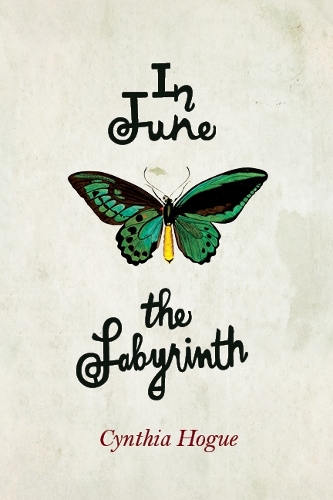
In June the Labyrinth
(Paperback)
Publishing Details
In June the Labyrinth
By (Author) Cynthia Hogue
Red Hen Press
Red Hen Press
27th June 2017
United States
Classifications
Physical Properties
Paperback
76
Width 152mm, Height 228mm, Spine 5mm
91g
Description
In her stunning ninth collection of poetry, In June the Labyrinth, Cynthia Hogue tells a deeply personal lyric of love and loss through a mythic story. This book-length serial poem follows Elle, a dying woman, as she travels a trans-historical, trans-geographical terrain on a quest to investigate the labyrinth not only as myth and symbol, but something akin to the "labyrinth of the broken heart." At the heart of Elle's individual story is the earnest female pilgrim's journey, full of disappointment but also hard-won wisdom and courage--inspired by Hogue's own composited experience with loss, in particular the death of her mother. Rooted in the idea of the labyrinth as a symbol for life, as in the great Gothic cathedrals of Europe that Hogue would visit the summer of her mother's death, these poems above all distill, fracture, recompose, and tell only partially--literally in parts but also in loving detail--the story of a life.
Reviews
What is happening when a book following (in every sense) a mothers death takes the form of a postmodernist stream of consciousness, giving full weight to space and silence, to the roots and routes of language, and to the predicament of the body The poets mind, as it were, breaking and entering Today I could say I read In June the Labyrinth, or I could say I let the poem carry me downstream. The ghost of Shelley waved from the bank of the river. The world was being shattered but I was safe, thanks to Cynthia Hogues well-made craft, in which I rode. Alicia Ostriker, author of The Book of Seventy, winner of the Jewish National Book Award
Hogue has a knack for intensity. And she ingeniously describes natural processes in apt human termsfor instance, the concentration it takes / for water to become / ice.. . . Hogues particular wit and intensity relay not merely the appearance of art, but the experience of it, its complication of what is. Craig Morgan Teicher, New York Times Sunday Book Review
Reading Cynthia Hogues gorgeous new book is a little like being in a labyrinth: you know where youre going, but the turns keep surprising you and taking you places you didnt expect. This wonderful long poemunbroken, again like a labyrinthis heartbreaking, but the aesthetic richness and emotional depth make it a great gift. Martha Collins, author of One: An American Scrapbook and Blue Front
"Cynthia Hogues In June the Labyrinth is a stunning and unforgettable book. It is a letting in of grief rather than a letting go. Hogues poems demonstrate how one does not recover but rather uncovers and discovers truths about the others being in relation to oneself. Ultimately, these truths come to rest in language itself, in the poem embodied as a form of conscious companion."Heather Thomas, The Florida Review
Author Bio
Cynthia Hogue has published thirteen books, including eight collections of poetry, most recently Revenance, listed as one of the 2014 Standout books by the Academy of American Poets. In June the Labyrinth (Red Hen Press, 2017) is her ninth poetry collection. With Sylvain Gallais, Hogue co-translated Fortino Smano (The overflowing of the poem), from the French of poet Virginie Lalucq and philosopher Jean-Luc Nancy (Omnidawn 2012), which won the Harold Morton Landon Translation Award from the Academy of American Poets in 2013. Among Hogues other honors are an NEA Fellowship in poetry, the H.D. Fellowship at the Beinecke Library at Yale University, a MacDowell Colony residency, and the Witter Bynner Translation Fellowship at the Santa Fe Art Institute. Hogue served as the Distinguished Visiting Writer at Cornell University in the Spring of 2014. She was a 2015 NEA Fellow in Translation, and holds the Maxine and Jonathan Marshall Chair in Modern and Contemporary Poetry at Arizona State University. She lives in Phoenix.
